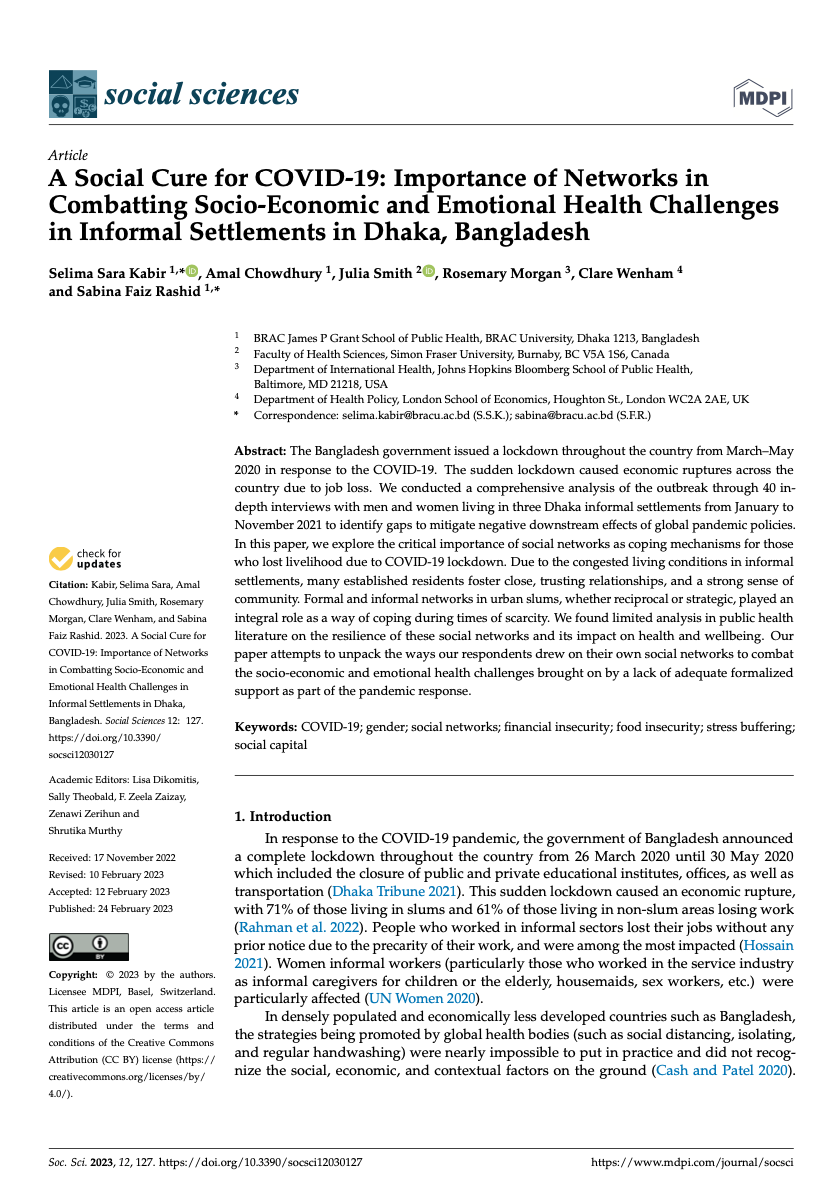Abstract
The Bangladesh government issued a lockdown throughout the country from March–May 2020 in response to the COVID-19. The sudden lockdown caused economic ruptures across the country due to job loss. We conducted a comprehensive analysis of the outbreak through 40 in-depth interviews with men and women living in three Dhaka informal settlements from January to November 2021 to identify gaps to mitigate negative downstream effects of global pandemic policies. In this paper, we explore the critical importance of social networks as coping mechanisms for those who lost livelihood due to COVID-19 lockdown. Due to the congested living conditions in informal settlements, many established residents foster close, trusting relationships, and a strong sense of community. Formal and informal networks in urban slums, whether reciprocal or strategic, played an integral role as a way of coping during times of scarcity. We found limited analysis in public health literature on the resilience of these social networks and its impact on health and wellbeing. Our paper attempts to unpack the ways our respondents drew on their own social networks to combat the socio-economic and emotional health challenges brought on by a lack of adequate formalized support as part of the pandemic response.
Kabir SS, Chowdhury A, Smith J, Morgan R, Wenham C, Rashid SF. A Social Cure for COVID-19: Importance of Networks in Combatting Socio-Economic and Emotional Health Challenges in Informal Settlements in Dhaka, Bangladesh. Social Sciences. 2023; 12(3):127. https://doi.org/10.3390/socsci12030127






